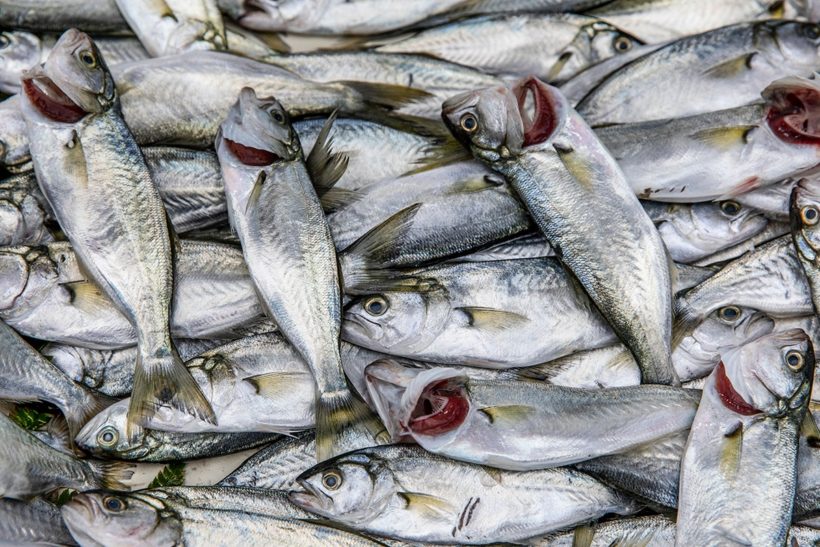The Environment, Food and Rural Affairs (EFRA) Committee held the first session of its inquiry into the UK Seafood Fund (UKSF) on 7 June, hearing from a range of key industry figures, reports Gaby Bartai.
Launched in December 2021 as a partial replacement for EU funding for the sector following Brexit, the UKSF has two funding rounds, the first of which closed on 14 June. The areas earmarked for investment by the fund are infrastructure, science and innovation, skills and training, and seafood promotion for exports.
The EFRA evidence session – the first under the chairmanship of Sir Robert Goodwill, who was elected at the start of June – sought industry feedback on how successful the UKSF is likely to be in helping to ‘overcome the challenges facing the UK fishing industry, ports, processors, training and coastal communities’, and how it could be improved.
The six industry witnesses at the session were Barrie Deas, chief executive of the NFFO, Elspeth Macdonald, chief executive of the SFF, Jimmy Buchan, chief executive of the Scottish Seafood Association, Simon Potten, head of training (safety and services) at Seafish, Hamish MacDonell, director of strategic engagement at the Scottish Salmon Producers’ Organisation, and Mark Simmonds, director of policy and communications at the British Ports Association.
Barrie Deas started by making the point that, although £100m was a ‘significant’ sum, it was still very much ‘second prize’ in terms of the opportunities the fishing industry had expected to gain from leaving the EU.
Asked to define the biggest challenges currently facing the industry, he said the main ones were ‘living with the TCA’, the spatial squeeze caused by the growth of offshore wind and the proliferation of MPAs, the fuel price crisis, the many unknowns around the development of fisheries management plans, the need for decarbonisation, and the labour shortage.
Concluding, he said: “I don’t think that the funds that have been made available and the structures that we’re working in are particularly well aligned with those.”
Elspeth Macdonald echoed his comments on the challenges of the ‘hugely disappointing’ Brexit deal. Linked to the failure to establish zonal attachment as the guiding principle for quota shares, she said, was the fact that stock distribution is currently shifting, and science is failing to keep pace with this. “The £100m fund does have a scientific component to it, but I suspect that it is not long-term enough, and it’s not sufficient, to address those sorts of challenges,” she said.
Echoing Barrie Deas’ comments on spatial pressures, she also flagged up the ‘particularly Scottish’ issue of the Bute House agreement between the SNP and the Scottish Greens, which will see an ‘escalation’ in MPA designation.
She concluded: “There are many challenges that we face. The £100m fund will go some way to addressing some, but I think there are many challenges that will need more than money, and that will require political will and support to address.”
Both federation leaders criticised the lack of engagement with the sector in the development of the UKSF. “We were presented pretty much with a fait accompli,” said Barrie Deas. This meant there had been a failure to ensure that ‘the issues aligned with the challenges that we faced’.
“There’s a lack of anything that’s really meaningful for the grassroots vessel operators,” said Barrie Deas. “I’m being told that it’s very difficult for fishing vessel operators to access the fund.” The structure and bureaucracy of the fund made it particularly difficult for under- 10m vessels to benefit, he said. “The system lends itself to the larger operators.”
Elspeth Macdonald concurred with this point. “The bureaucracy of the fund is quite challenging,” she said, particularly for smaller fishing businesses, and the short timescale of the fund – projects must be completed by March 2024 – exacerbated this. A review is essential ahead of Round 2, she said, to ‘learn the lessons’. This was a point echoed across the panel.
Chairman Robert Goodwill responded by saying that it is looking likely that the second round of funding will be opened in the early autumn, and is expected to include ‘targeted funding for the fleet’.
Both federation leaders expressed reservations about the decision to earmark £1m of the funding for the promotion of exports. Barrie Deas said: “It might work, but I can think of better ways of spending the money.”
Both pointed out that, in general, exports are currently working well, with strong demand and prices – and that where there are issues with exports, these are often due to conflicting regulatory frameworks, as in the case of crab exports to China. Elspeth Macdonald said: “It’s not just a simple issue of investing more in promotion – I think there are other levers that government could pull.”
Welcoming the UKSF, Jimmy Buchan made the case that processing has been the poor relation in terms of funding, as compared to vessels and ports, and said that the processing industry is in urgent need of investment in order to be able to compete in a global market. “Innovation will be the driver here, and that’s why we need these funds.”
However, actually accessing the funding may be more difficult, he said. “The bureaucratic tiers of different hoops that the industry needs to go through to draw down these funds make it very challenging, and if I dare say, in some cases offputting.” While big companies have the resources and expertise to cope with complicated application processes, these are likely to exclude smaller processors, he said.
Mark Simmonds made the point that for infrastructure projects, the short timescale of the fund is challenging, if not unrealistic. “Most ports would need a three- year window in terms of delivering large-scale projects,” he said. “We would like to see that extended by at least a year.”
He also suggested that pre- application support from Defra in Round 2 would make the fund more accessible to a broader range of applicants.
Jimmy Buchan agreed that the timescale on projects needed to be extended in Round 2, and echoed a point made by Elspeth Macdonald earlier in the session about the anomaly of Scottish businesses needing to choose between applying to the UKSF and to Marine Fund Scotland – and possibly failing to secure funding at all as a result.
Asked how he would judge whether the fund had been a success, Barrie Deas said: “We’ll listen to our grassroots members – that will be the criteria that we’ll use – whether the money has got down to that level.”
This story was taken from the latest issue of Fishing News. For more up-to-date and in-depth reports on the UK and Irish commercial fishing sector, subscribe to Fishing News here or buy the latest single issue for just £3.30 here.






